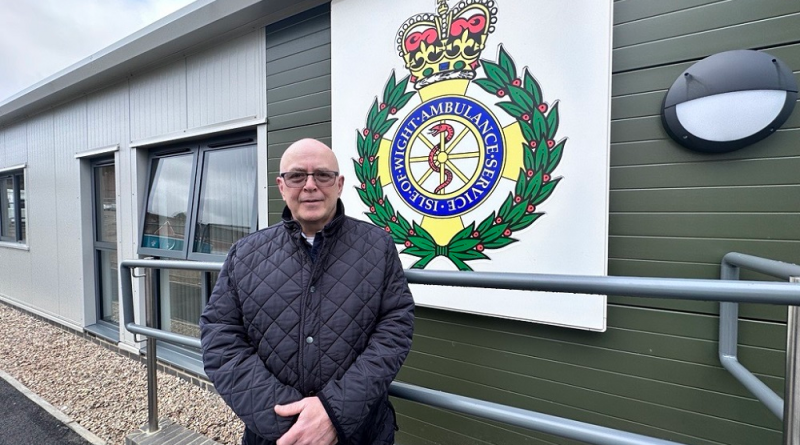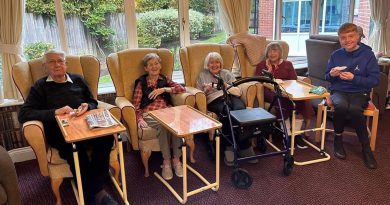Island partnership that saved medic Murray’s life
A COMMUNITY first responder for the Isle of Wight NHS Trust has praised the care he received after having a heart attack in the early hours of Tuesday, November 8, 2021.
Murray Clark, who had previously worked for South East Coast Ambulance Service for nine years and, more recently, as a community first responder for the Isle of Wight NHS Trust Ambulance Service, went to bed at 11pm before waking up at 3am with severe chest pains.
With no improvement after taking aspirin and heartburn medication, Murray took his blood pressure, was shocked to see it was over 200 and rightly suspected he was having a heart attack: “I woke my wife up, told her what I thought was happening and she drove me to St Mary’s Hospital.
“Once we arrived, I was quickly triaged by the emergency care team and a nurse performed an electrocardiogram [ECG] that confirmed I had experienced a STEMI heart attack.
“The medical team were fantastic and acted quickly, taking the decision to thrombolyseme. Within 15 minutes of the procedure the pain had subsided. They were calm, collected and kept me informed of what was happening every step of the way.”
Thrombolysis, commonly used to treat stroke cases, helps to remove any blot clot in the body and so the risk of further strokes or heart attacks. Murray still required further treatment from the cardiology team at Queen Alexandra Hospital, Portsmouth Hospitals University NHS Trust.
Cath lab
The emergency care team arranged a cross-Solent transfer to the mainland and Murray was blue lighted to QA via HoverTravel that morning at 8am.
He said: “I was quickly transferred and admitted to the catheterisation laboratory, more commonly known as a cath lab at QA, where the cardiology team, treated me by clearing my arteries and fitting them with four stents.
“I was discharged from QA that Saturday and returned to work six weeks later. The care I received across the two organisations was brilliant. Although I was surprised that the Isle of Wight NHS Trust did not have a cath lab, my care and my transfer between the two hospitals was seamless.
“Since my heart attack I have returned to both hospitals for follow up appointments and the aftercare I have received from the teams has been faultless.”
Murray added: “Living on an island will inevitably come with its challenges in accessing services we might sometimes need. However, the partnership between our Island and mainland healthcare services meant that I got the care that I needed.”
PICTURED: Isle of Wight heart attack survivor Murray Clark




